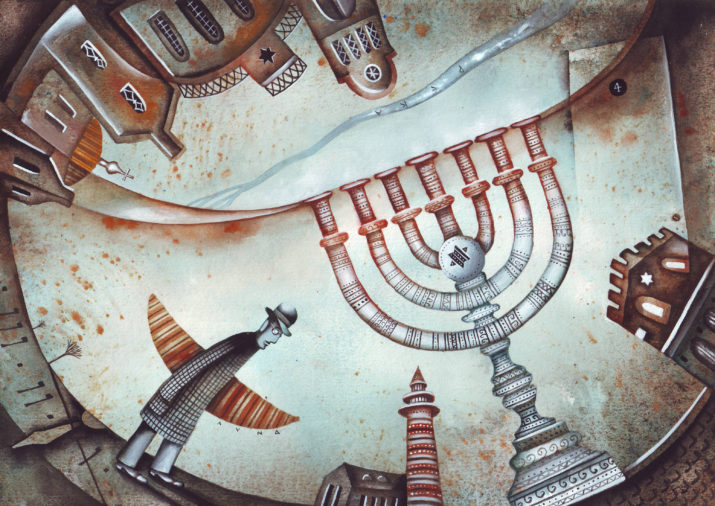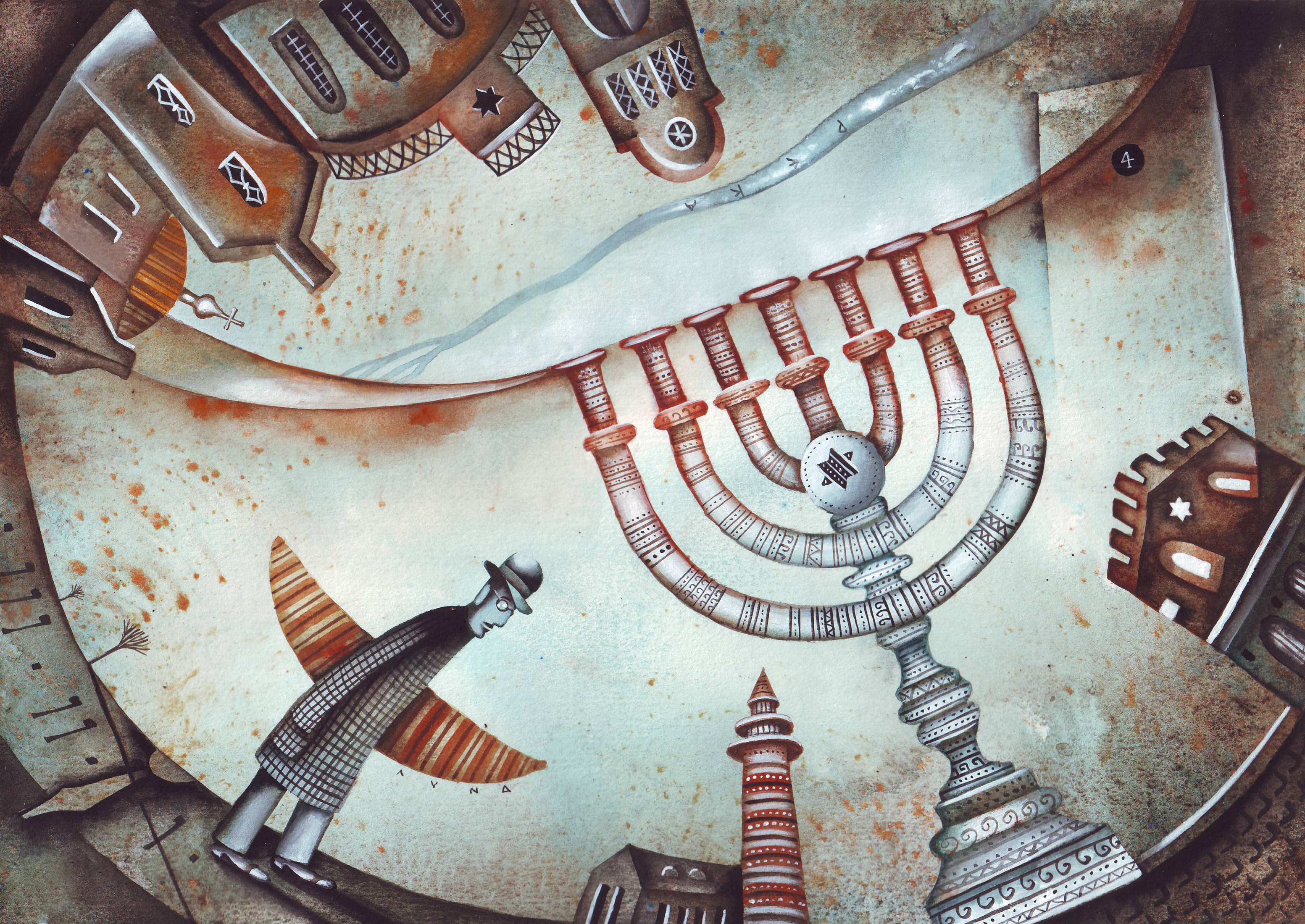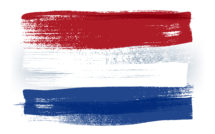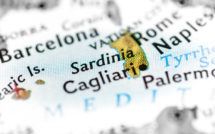

This is part of our special feature, United in Diversity.
For some World War II allies, such as France, cessation of hostilities resulted in a bittersweet victory. Behind the national celebrations and the political slogans in the immediate aftermath of the war, a pervasive and resilient malaise, best described in Stanley Hoffmann’s expression as “the skeletons in the nation’s closet,”[1] persisted, haunting as an inevitable specter the political and cultural orientation of the French state and spoiling what otherwise would have been a military victory and an effective moral win.[2] Except for a brief postwar episode of épuration (purge), for decades, France entertained the image of a country with unquestionable moral authority, an added value to the Jacobin ethics the French bequeathed to the rest of the world. The sense of a continuous savvy policy in decision-making meets the Annales School’s notion of the longue durée that places the events, including the history of post-revolutionary France, within a cycle, coherent and long lasting, and marked with a good track record. France would appear to be evolving since 1789, if not even before.
This view of history was thought to command a salutatory process for course correction, a natural act of self-reforming and self-scrutiny: “Salvation came from ‘eternal France,’ an abstraction that became a keystone of Gaullist symbolism.”[3] Events, such as the Jacobin Reign of Terror, the massacre of the Vendée, colonialism, the Dreyfus affair, the two world wars, the Holocaust, and the Algerian war, among other events, are nothing more than isolated aberrations subject to the corrective cycle of the longue durée. The Gaullists in power as well as the intellectual elite supported this view of history, as Hoffmann illustrates in Charles De Gaulle’s belief in the power of “pedagogical sublimation.”[4] According to this view, what essentially matters is the way forward and not the “isolated” ugly events of the past. The belief in the permanence of an ethical order carries the official myth that has captivated the French imagination and that a relatively unknown historian in 1987, Henri Rousso,[5] came to debunk in The Vichy Syndrome.[6] The “controversial” thesis in the book finds a sequel particularly in two more books that Rousso has published since then: Vichy: An Ever-Present Past (1998) co-authored with French journalist Éric Conan and, much more recently, Face au passé (2016). This paper will explore the conflict over Vichy’s past, or the extent of the country’s implication in the Shoah, what Rousso called “a neurosis”[7] that divided the French between the neo-Vichyite who “sought to coopt a symbol that still had positive value in the eyes of the public” and those who were “responsible for the purge,” or the traitors and Nazi collaborators.[8]
His first book marks Rousso’s first attempt at breaking an established myth: the repressed in France’s past. French historiography in the 1980s, including Rousso’s, entails archeological excavations in search of an alternate version of history as memory, not opposed by design to history as a national allegory of the Jacobin tradition of cultural enlightenment, political emancipation, and economic wellbeing. Rather, the factual presence of vestiges, tracks, and signs would be tools used by the historian to highlight the substantive structural limitations of history as an official narrative of myth-making, inadvertently sustaining a version more divisive than universalist. This version proved counterproductive to the function of history and its role in nation-building. Its impending repudiation speaks to the erosion the French political elite determined affected its primary function “of forging a national identity” when it traded the “therapeutic value” of history for an “internal war” of which none has been “more divisive than the war over Vichy.”[9] Louis-Dominique Girard’s neologism, guerre franco-française, captures the fratricidal face-off between the two camps of historians that has been in conflict starting in the early 1950s and again in the late 1970s onward.[10] Two clashing views of history have been seeking to delegitimate each other’s narrative by mitigating the role of France in the Holocaust and calling for general clemency in 1948, 1951, and 1953 on the one hand, and on the other hand, by hastily trying war criminals and Nazi collaborators. The amnesty, ironically in French oubli juridique (legal oblivion),[11] had the last word and resulted in 1964 in the liberation of almost every detainee among the 40,000 collaborators and war criminals.[12]
“The institutional denial,” as laid out in Rousso’s discussion of the Jewish question in postwar France, calls out the issue of “recognition” and “repentance,” two of the thorniest concepts in intersubjective relations in France. In Vichy: An Ever-Present Past, the two terms are constantly in the background to account for the gridlock between the deniers of the “skeletons in the nation’s closet” and the partisans—a minority at the beginning—of the process of “recognition” and healing. Regardless of the ideological warfare, the persistence of an undesirable memory, which the Gaullists thought to have permanently numbed by hastily trying Nazi collaborators before liberating them all through a campaign of national reconciliation, showed how resilient to passing France’s past has become, especially in light of the 1968 student riots. Robert Paxton writes in the foreword that: “The Gaullists and Communists who had triumphed at the Liberation succeeded, independently but in tacit complicity, in imposing a version of history according to which France had resisted almost unanimously, from the beginning.”[13] This unanimity becomes the bone of contention for Conan and Rousso as well as for the 1968 cultural awakening that unleashed a wave of films, documentaries, historical and literary narratives, subverting the veracity of the official version of history that Gaullists and, to a lesser degree, the Communists gave of France’s role in the war. The past that had been settled resurfaced vigorously, almost cyclically whenever new facts hit the airwaves about the collaboration of a substantial segment of the population, not necessarily confined to Vichy supporters but also to his sympathizers for the patriotic view of France the Marshal flaunted and symbolized.
The Gaullists’ view of history crashed after the release of Marcel Ophuls’ 1969 documentary film Le chagrin et la pitié (The Sorrow and the Pity). In the two-part documentary, Ophuls, a German-born filmmaker who grew up in France and studied in the United States, relies on interviews and historical footage as a successful strategy of make-believe to uncover and present a disturbing reality that, in Olivier Wieviorka’s words, a French historian with reputable expertise in the French Resistance, “broke with orthodoxy. Focusing on the city of Clermont-Ferrand, it showed that residents, far from having resisted en masse, had spent the dark days in a state of indifference, sometimes supporting Philippe Pétain and in one case even joining the collaborationist camp.”[14] While television stations in Germany, Switzerland, the Netherlands, and the United States screened the movie, the Pompidou government in France censored it “because it contained disturbing truths.”[15] Or as a French reviewer of the period observed, it “shatters the myths that the French need.”[16] Other than screenings in two Parisian cinemas: The Saint-Séverin and The Paramount, the documentary continued to be censored. It first appeared on television over a decade later on 28 October 1981 when FR3 finally ran it,[17] subverting the “resistancialist” myth and ushering in an endless debate on history and memory.[18]
The situation in France since then can best be described using German historian Ernst Nolte’s popular expression: Vergangenheit, die nicht vergehen will (the past that will not pass). The expression documents a similar dispute in Germany, Historikerstreit,[19] that inspired part of Conan and Rousso’s title: un passé qui ne passe pas (an ever-present past). Today, it takes little to reignite the dispute and conjure the memorial demons of the past that, exactly like the myth of Pandora’s Box, includes both blessings and evil. The analogy conveys the necessity of confession, of coming to terms with the evils of the past, of “recognition” as condition for divine blessings, or healing. The intensity of the dispute was palpable in the recent verbal assault by protesters from the Yellow Vest on Jewish French historian Alain Finkielkraut.[20] The incident demonstrates that France’s anti-Semitic past is still unsettled in spite of former President Jacques Chirac’s public pronouncements concerning France’s complicity in the deportation of Jews. The German expression,[21] which refers to this fragility, is widely used by politicians, historians, and social scientists to characterize the dilemma of a country torn between revisiting the past at the risk of harming national cohesion or moving forward to the detriment of justice. France may have opted for the first option but a little too late to prevent the instrumentalization of the issue in the culture wars; Finkielkraut’s attackers shouted “France belongs to us! You are a hatemonger,” and “Palestinian.”[22]
What official history does, as in the Gaullist version, is invite “counter-memory, to use Foucault’s phrase, and generate “a plurality of resistances” to hegemony.[23] The past is far from a monolithic notion but a composite of histories and events, a mosaic of unrelated moments and dissimilar attitudes whose anachronistic discrepancy surprisingly results in an official push for historical uniformity. Looked at separately, colonial violence and the rise of anti-Semitism may not have much in common although for the first time they concurrently marked a period in history: late nineteenth century and the twentieth; the concurrence could be the reason for the awkward application of a formulaic denial without due attention to fundamental dissimilarities between the Jewish question and colonialism. Hannah Arendt, for example, links the birth of modern anti-Semitism to the decline of traditional nationalism, reaching a climatic stage in the Shoah with the collapse of “the European system of nation-states and its precarious balance of power.”[24] Colonialism’s demise, by contrast, ensued from the rise of national movements and the beginning of the early experiments of the nation-state across the colonial world. Temporal anachronism and discrepant political moments did not alert policy makers to a mechanic formula incommensurate with a myriad past. This incommensurability leaves so much to be desired in the state’s policies concerning the memory of the Holocaust and the Algerian war.
The shortcoming points to the discrepancy between the institutional gains regarding the Holocaust and colonialism, especially after Macron’s recent goodwill gesture towards Algeria, and the underwhelming popular interest in these two issues. It is ironic that “recognition” and healing have generated counter political currents in favor of a spike in “nationalist and identity movements” and an uptick in anti-Semitism.[25] The French term, négationnisme (negationism/denial),[26] has been used to convey the idea of the persistence of this denial, or what is left of it in politics and culture since the late 90s. Although the term has mostly been used to characterize Holocaust deniers, as a thesis it has found a fertile ground in the anti-immigration politics of the Front National (the National Front), the ultraleft, and within a clique of French intellectuals and historians, such as the neo-fascist Maurice Bardèche, Paul Rassinier, Roger Garaudy, Louis Darquier,[27] Robert Faurisson,[28] and Henri Roques, among many others. For Rousso, it is the desire to pave the way for the renaissance of the far right more so than Holocaust denial per se that accounts for the zeal of negationism; by denying the Holocaust, the partisans of the denial have been looking to absolve the far-right from any responsibility in the deportation of French Jews to the death camps.
Although denying the Holocaust is a punishable offence in France since 1995, negationism has turned into a subtle practice in politics as well as in academia. For many decades, “the institutional denial” has been the prerogative of the French state through the appropriation of “le mythe du résistancialisme” (the resistancialist myth) as well as the use of state-run maneuvers aimed at manufacturing amnesia, or “la fiction de l’oubli” (the fantasy of amnesia),[29] to undercut France’s implication in the genocide. Those maneuvers translate a political will to do away, somewhat arbitrarily, with the traumas of the past in order to rally public opinion in favor of institutionalized silence as an adequate policy in France’s handling of the aftermath of the Holocaust and the Algerian war. Sporadic signs of this policy still occasionally make their way to the highest echelons of the French state, as illustrated in Nicolas Sarkozy’s speech on 17 April 2007 in which he claims that “France never committed crimes against humanity.”[30] While there is no reason to believe that “negationism” and “institutional denial” are intertwined, both seem to converge on a common thesis, as illustrated in Sarkozy’s words above and the infiltration of anti-Semitism in institutions of higher education. Today, as Rousso points out, “negationism” is a “conscious” and “assumed ideological enterprise,”[31] a logical connection between the movement and the popular rise of the far right and World War II anamnesis. It is as much applicable to the denial of the Holocaust, as to torture and massacres in the colonies, which makes the present moment a transition from history to memory, even to memory wars,[32] a moment marked by a cacophony of voices but also by disappointments and frustrations in not being “recognized” or “heard.”
The ensuing frustration with “institutionalized amnesia” has been palpable as much in the French memory about the Holocaust as in French historiography about colonialism. While the two phenomena show distinctive crises, Rousso detects points of convergence in the protagonists’ mode of remembrance, in the manner of seeking justice and reparation, in the political leaders who had to deal with the crises at the same time, and in the categorical rejection of any measure to obscure the Holocaust and colonialism.[33] However, it should be pointed out that while some historians, such as Benjamin Stora,[34] Alain Ruscio, and Pierre Vidal-Naquet, among others, recognize the commonalities between the two crises, they stopped short of a comparative approach in the interest of not obscuring the specificities of colonialism and the Algerian war. For example, Vidal-Naquet maintained his opinion about France’s use of torture in Algeria until his death, only to be vindicated posthumously.[35] Ruscio, a French historian with expertise in Indochina and French Algeria, espouses the idea that l’OAS, Organisation armée secrète (Secret Army Organization), is responsible for “blocking history” in the name of “nostalgérie.”[36] As to Stora, he accuses France’s reconciliation with the memory of the Holocaust to have taken place at the expense of colonial wars, especially the Algerian war. He believes that France’s inaction and delays in matters of memory may have cost the country a rare opportunity to reconcile with Algeria while some of the protagonists in the conflict are still alive.[37]
It is for this particular reason that it would be premature to speak of a national campaign of healing, let alone of a reconciliation between France and Algeria. In an opinion piece in The New York Times, Le Monde’s editorial director Sylvie Kauffmann reports that “Macron’s words about torture [in Algeria] were cautious, and the Élysée, France’s presidential palace, noted that he was extending ‘recognition,’ not ‘repentance’.”[38] The “repentance” may eventually take place, as she argues, judging by the gradual course it took France to admit finally in 1995 its complicity in the deportation of French Jews. The sticking point remains the extent of the “recognition” and “repentance” as well as the slow pace the healing process has taken. We have not yet seen the end of “institutional denial.”
Zakaria Fatih is an Associate professor of French and Francophone studies at the University of Maryland, Baltimore Country (UMBC). He is interested in the literature and the cinema of the Francophone world in general and the Maghreb in particular. He also has a keen interest in critical theory. In addition to his two books in French, the first on alterity and truth in the discourse of the French Enlightenment, and the second on tradition and modernity in the Maghreb, he has published articles and book chapters on a variety of topics in French studies, and is presently working on a book project on indigeneity in Francophone studies. He was the review editor for the section Society and Culture of The French Review from 2015 to 2018 and is now assistant editor for the same journal.
References
[1] I am relying here on Stanley’s Hoffmann’s foreword to Henry Rousso, The Vichy Syndrome: History and Memory in France since 1944 (Cambridge and London: Harvard University Press, 1991), vii.
[2] Rousso writes that: “The Vichy regime and the collaborationists were directly responsible for the imprisonment of 135,000 people, the internment of 70,000 suspects (including numerous political refugees from central Europe), and the dismissal of 35,000 civil servants. As victims of exclusionary laws, 60,000 freemasons were investigated, 6,000 harassed, and 549 (of 989) died in the camps. The French governmental apparatus, together with parties in the pay of the Germans, abetted the deportation of 76,000 French and Foreign Jews, fewer than 3 percent of whom survived.” Rousso, The Vichy Syndrome, 7. Rousso’s statistics of 3 percent survival is also confirmed by Renée Poznanski on page 14: “All told, 76,000 Jews were deported from France, of whom only 3 percent survived.” in “The Rescue of Jews and the Resistance in France: From History to Historiography,” French Politics, Culture and Society. Special issue, The Rescue of Jews in France and its Empire 30, n.2 (Summer 2012): 8-32.
[3] Ibid., 16.
[4] Ibid., viii.
[5] Henri Rousso is one of the most popular French historians alive today. In the three books listed in this article, he has focused mostly on the memory of the Holocaust and its repercussions on French national identity and the place of the Other in French society.
[6] The book by Rousso, The Vichy Syndrome, 1991 appeared in French in 1987.
[7] Ibid., 11.
[8] Ibid., 28.
[9] Ibid., 4.
[10] Louis-Dominique Girard was one of the top civil servants in Marshal Pétain and an expert in international law.
[11] “oubli juridique” literally translates into English as “legal oblivion” when, in fact, it means “amnesty.” Rousso writes: “In French law, amnesty is actually defined as ‘legal oblivion’ (oubli juridique). Hence it has the potential to alter the country’s very perception of the Occupation, because the courts would be empowered to impose silence concerning all judgments covered by the amnesty.” Ibid., 50.
[12] Ibid., 53-54.
[13] This excerpt is taken from the foreword to Éric Conan and Henri Rousso, Vichy: An Ever-Present Past (Hanover&London: UP of New England, 1998), ix.
[14] Olivier Wieviorka, The French Resistance, trans. Jane Marie Todd (London & Cambridge: Harvard UP, 2016), 462.
[15] Ibid.
[16] My own translation of “détruit les mythes dont les Français ont besoin” (25) in Marie-Christine Kok Escale, “Le chagrin et la pitié: Chronique d’une cité française sous l’occupation allemande. Histoire et mémoire.” RELIEF – Revue Électronique de Littérature Française 6, no.1, (2012) 23–36. https://www.revue-relief.org/articles/abstract/10.18352/relief.758/.
[17] Ibid, 26.
[18] “Resistancialist” is one of Henri Rousso’s neologisms; it is spelled with a “c” instead of a “t” after the “n” to evoke the hyperbole surrounding the resistance in France. For Rousso, “résistantialisme” has a “pejorative connotation,” since it alludes to “those whose bravado was allegedly displayed only in the final days of the war.” Rousso, The Vichy Syndrome, 28.
[19] Historikerstreit to which Robert O. Paxton refers in the foreword in Conan and Rousso’s Vichy: An Ever-Present Past, xii appeared first in Ernst Nolte’s discussion of the German past.
[20] The incident, as it happened and its far-reaching repercussions, is reported in an article in The New York Times by Adam Nossiter who writes that some protesters from the Yellow Vest movement hurled slurs at the Jewish right-wing historian Alain Finkielkraut: “‘Fascist!’ they yelled. ‘Palestine!’ ‘Go home to Israel!’ ‘Tel Aviv, back to Tel Aviv!’” The attack on Finkielkraut, the son of a Jewish Holocaust survivor “snowballed into another episode of anguished national soul-searching over the problem of persistent anti-Semitism in France.” Finkielkraut’s reaction alludes to France’s anti-Semitic past but also to its present as verbal and physical attacks against the Jews, also from the Muslim banlieue, have been on the rise: “‘I think some of them wanted to beat the hell out of me,’ He told the television station LCI. ‘There was a pogrom like violence about it.’” See Adam Nossiter, “Anti-Semitic Taunts by Yellow Vest Prompt French Soul-Searching.” The New York Times, February 18, 2019. https://www.nytimes.com/2019/02/18/world/europe/france-antisemitism-yellow-vests-alain-finkielkraut.html
[21] I am referring to: Vergangenheit, die nicht vergehen will (the past that will not pass).
[22] Nossiter, “Anti-Semitic Taunts.”
[23] Michel Foucault, The History of Sexuality, Vol. 1, An Introduction (New York: Vintage Books, 1990), 96.
[24] Hannah Arendt, The Origins of Totalitarianism, (New York: Harcourt, 1968), 3.
[25] Rousso’s idea reads like this in the French text: “Rares sont les observateurs qui s’interrogent sur la réelle efficacité de ces politiques: plus on a dénoncé les crimes de Vichy, plus la France a connu la renaissance de mouvements nationalistes et identitaires; plus l’Europe a accordé à la Shoah le statut d’événement référentiel, plus l’antisémitisme a refait surface,” in Henry Rousso, Face au passé: Essai sur la mémoire contemporaine (Paris: Belin, 2016), 24.
[26] Rousso considers Paul Rassinier the founder of French “negationism;” Rousso, Face au passé, 177.
[27] The statement: “À Auschwitz, on n’a gazé que les poux” (In Auschwitz, only lice were gassed) is attributed to him; Rousso, Face au passé, 178.
[28] “Les chambres à gaz, ça n’existe pas” (Gas chambers don’t exist) is one of his infamous statements concerning the denial of the Holocaust; Rousso, Face au passé, 178.
[29] “The fantasy of amnesia” is my own translation of Rousso’s “la fiction de l’oubli.” Ibid., 118.
[30] Ibid., 108.
[31] Ibid., 174.
[32] Ibid., 16.
[33] For a discussion of the commonalities between the Holocaust and colonialism, see the section: “Conflits du passé, conflit du présent” in Rousso, Face au passé, 131-142.
[34] The ideas paraphrased here can be found in Benjamin Stora, La gangrène et l’oubli: La mémoire de la guerre d’Algérie (Paris: La Découverte, 1998, 1991), 221-225.
[35] See Sylvie Kauffmann’s article, “France Lifts the Lid on its Algeria War.” The New York Times, Oct. 8, 2018. Accessed February 22, 2019. https://www.nytimes.com/2018/10/04/opinion/france-torture-algeria-war.html.
[36] Alain Ruscio, Nostalgérie: L’interminable histoire de l’OAS (Paris: La Découverte, 2015), 8.
[37] See Stora, La gangrène et l’oubli, 1998, 8.
[38] Kauffmann Sylvie. “France Lifts the Lid on its Algeria War.”
Photo: The Jewish Menorah | Shutterstock
Published on April 2, 2019.




